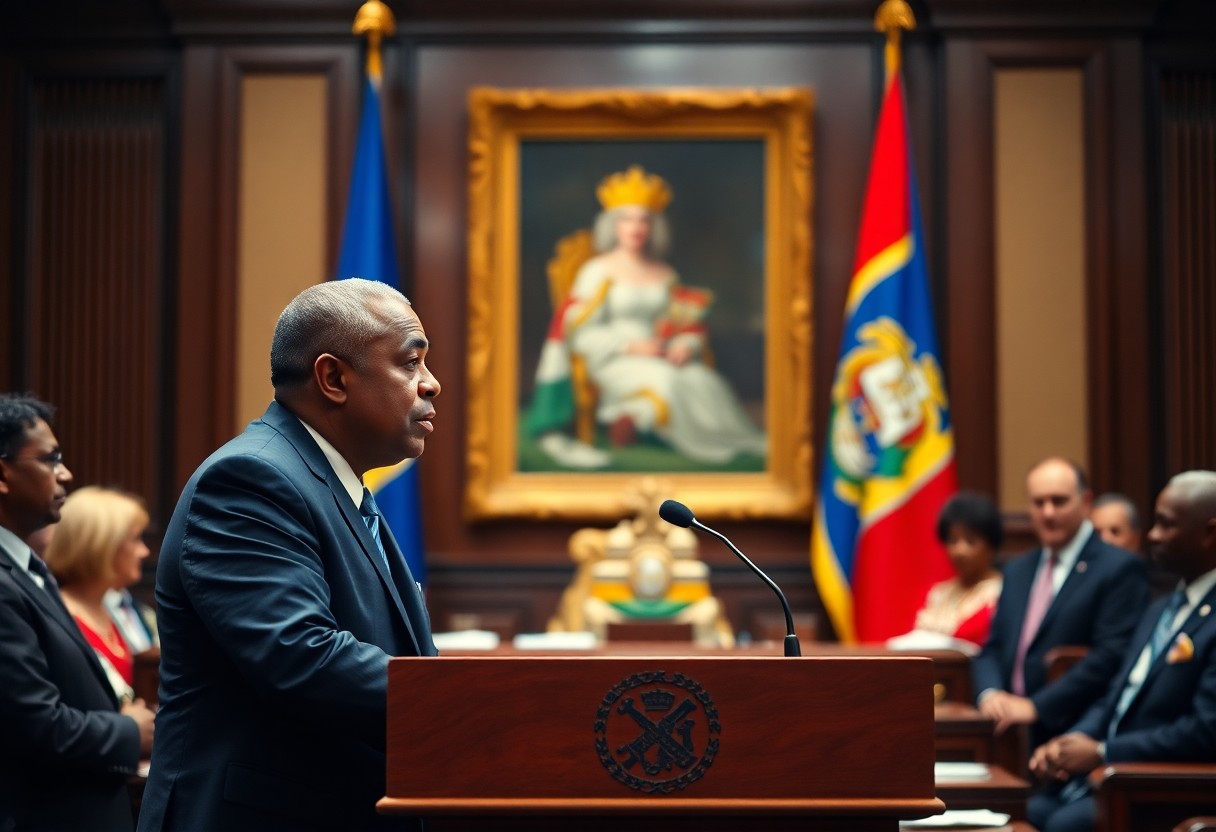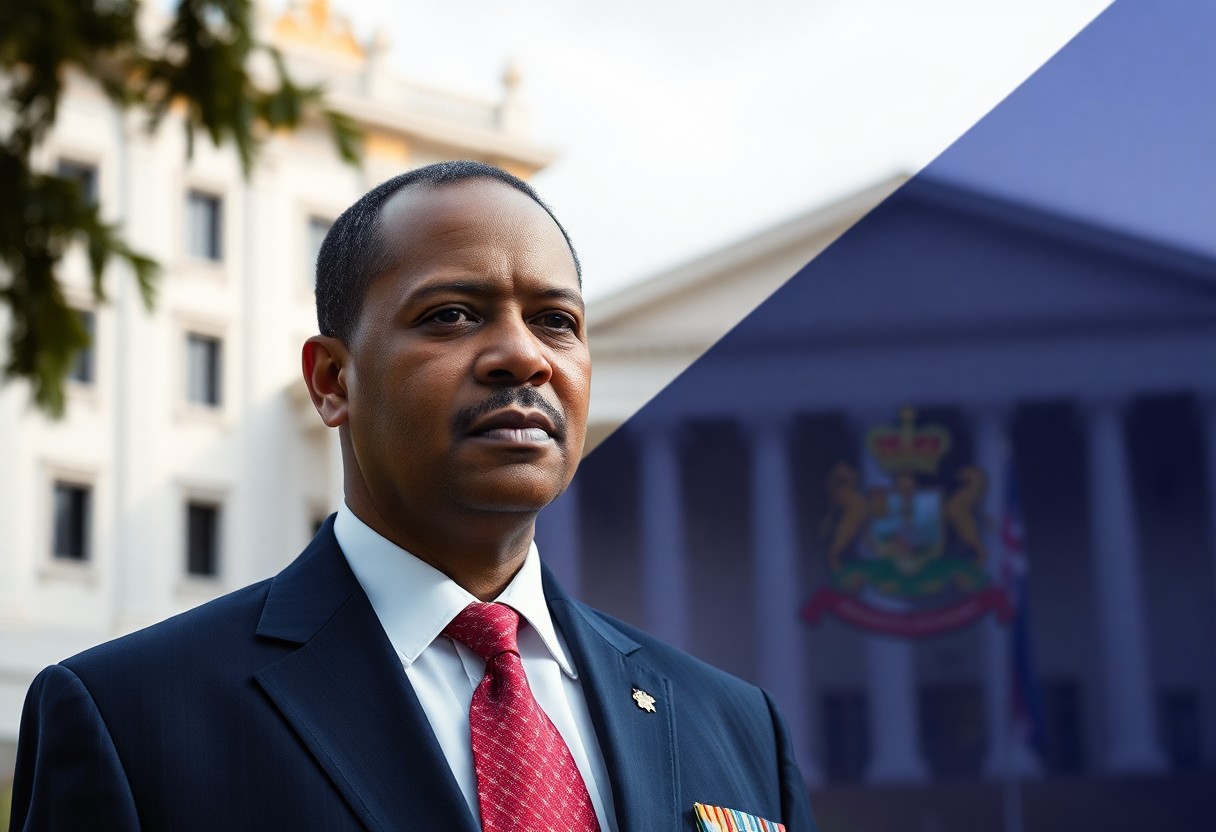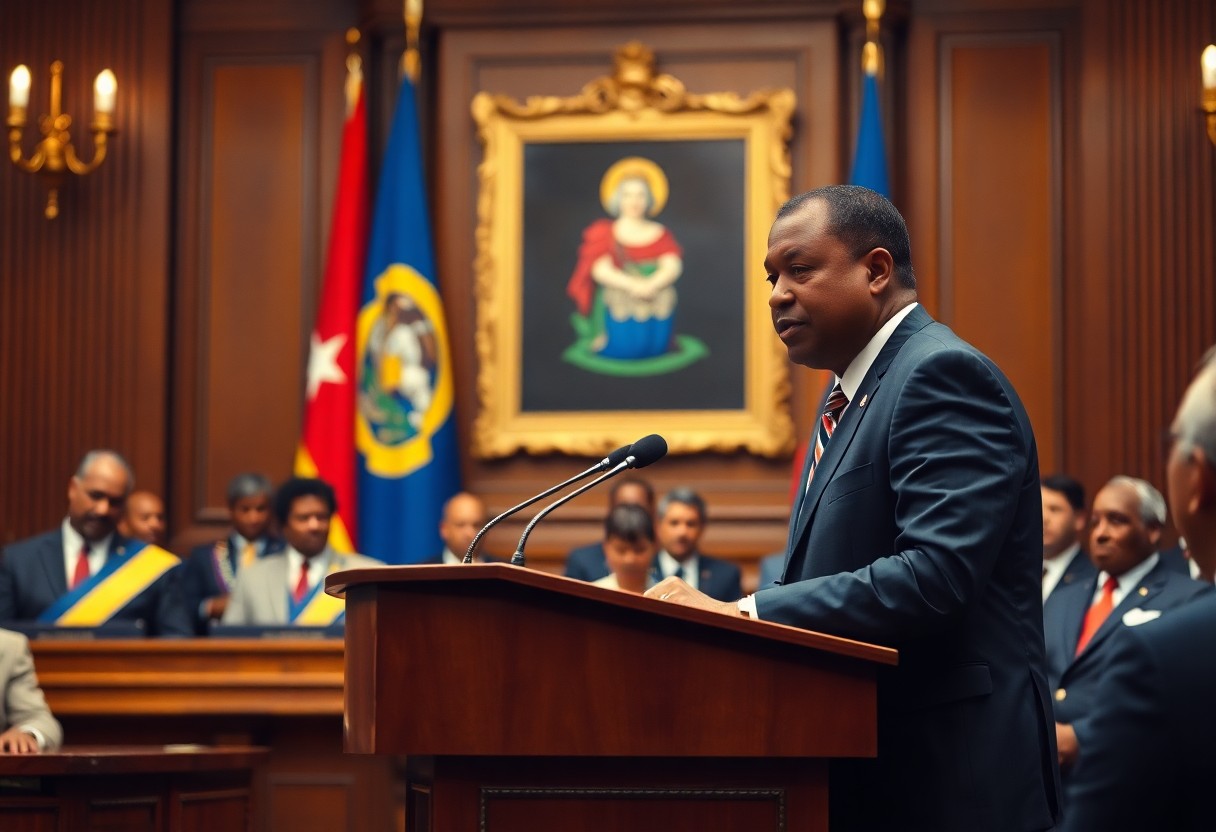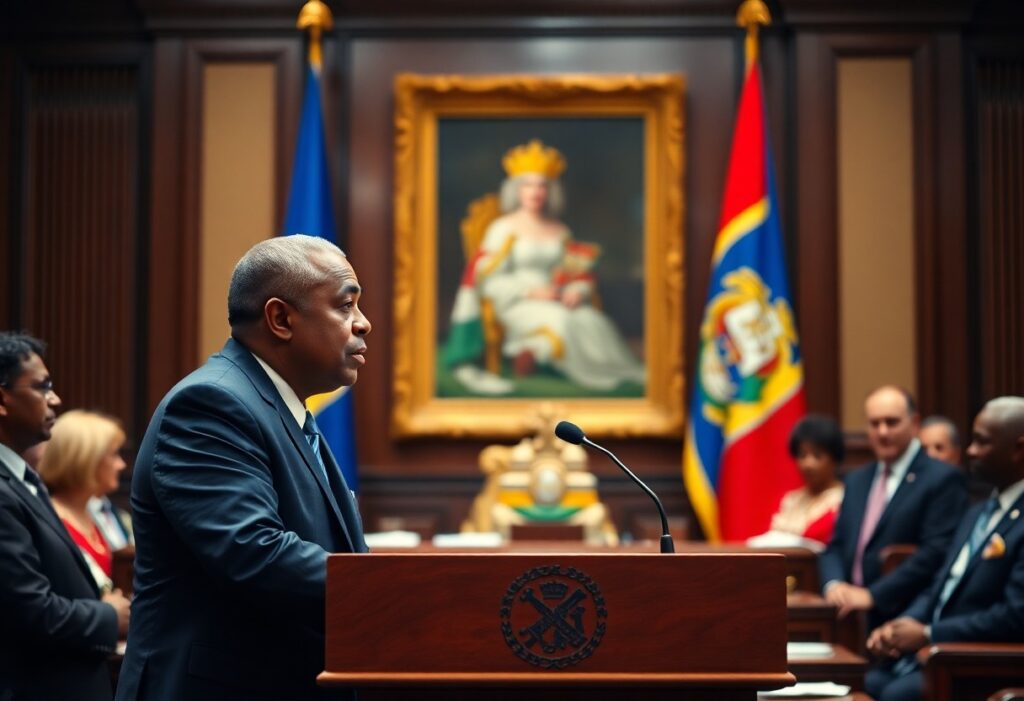Belize showcases a captivating political landscape characterized by its complexities and intricacies. As a parliamentary democracy, Belize functions under a constitutional framework where the involvement of elected representatives is paramount to effective governance. Despite being a Commonwealth realm with King Charles III serving as the official head of state, the real political power resides with the Prime Minister and the National Assembly. This unique structure intertwines traditional British parliamentary customs with modern democratic practices, resulting in a distinct political environment that mirrors Belize's rich historical and cultural heritage.
Delving Into Belize's Constitutional Framework to Enhance Governance
Belize’s constitutional framework establishes the foundation for a parliamentary democracy within the Commonwealth realm. This system aims to balance the ideals of democratic governance with the historical institutional frameworks inherited from British colonialism. The constitution, which was enacted in 1981 following Belize's independence, outlines the fundamental political organization of the country, clarifying the roles and interactions among different branches of government. This framework is crucial in ensuring that Belize’s governance remains both representative and accountable to its diverse citizens, fostering a culture of civic engagement and responsibility.
Unpacking the Monarch's Ceremonial Role as Head of State
Under Belize's constitutional design, the British monarch serves a ceremonial role as the head of state. While King Charles III is recognized as the sovereign, he is represented in Belize by a Governor-General appointed based on ministerial advice. This representative's role is largely symbolic, encompassing formal governmental ceremonies and a series of constitutional responsibilities that are vital to the nation’s governance. This arrangement not only highlights the historical relationships between Belize and the British monarchy but also allows local governance to flourish and adapt to contemporary needs.
The Prime Minister: Belize's Principal Political Leader
Within Belize’s political framework, the Prime Minister holds a position of executive authority and political leadership. This role is typically filled by the leader of the majority party within the House of Representatives. The Prime Minister is tasked with directing national policy, managing government operations, and representing Belize in international affairs. Their influence is essential in shaping the direction of the nation and its political landscape, playing a critical role in both domestic and foreign policy decisions.
The constitutional provisions delineate the extensive responsibilities that the Prime Minister undertakes within Belize’s governance structure. This role requires critical decision-making across multiple governmental sectors, underscoring the necessity of effective leadership. The Prime Minister leads the Cabinet, proposes significant legislative initiatives, orchestrates national economic strategies, and serves as the primary political spokesperson for Belize. Their authority is substantial yet balanced by the oversight of parliament and the limitations imposed by the constitution.

Assessing the Influence of the Prime Minister on Belize's Governance
The Prime Minister of Belize is not merely the head of government, but also possesses significant political influence and authority. As the leader of the majority party in parliament, they are instrumental in steering national policy, representing Belize on the world stage, and overseeing the executive branch of government. Their position is paramount for ensuring effective governance and facilitating national decision-making processes that resonate with the citizens' needs.
Examining the Comprehensive Powers of the Prime Minister
To fully comprehend the political architecture of Belize, it is essential to recognize that the Prime Minister wields substantial constitutional powers that greatly influence the nation's political environment. Their authority includes appointing cabinet ministers, advocating for new legislation, directing government policies, and representing Belize in various international discussions. This considerable influence solidifies the Prime Minister’s role as a central figure in Belize's governance, with the power to significantly shape the nation’s future.
Understanding the Election Process for Prime Ministerial Selection
Typically, candidates for ministerial positions emerge through party-centric electoral processes. It is common for prospective Prime Ministers to be leaders of their respective political parties who successfully secure seats in parliament. Their selection hinges upon their party's performance in national elections, reflecting the core democratic values that underpin Belize’s governmental structure.
The election process in Belize encapsulates complex political dynamics that are essential for understanding its governance. Candidates face numerous challenges, including local constituency elections, party nominations, and national voting trends. Generally, the leader of the political party that wins the most seats in parliament ascends to the position of Prime Minister, illustrating the direct connection between electoral success and governmental leadership.

Investigating Belize's Bicameral Parliamentary Structure
Belize operates under a parliamentary democratic model, embracing a Westminster-style governance system that originates from British colonial traditions. The bicameral legislature consists of two chambers: the House of Representatives and the Senate, together forming the primary legislative body responsible for drafting and enacting national laws.
Defining the Role of the House of Representatives
The House of Representatives plays an essential role in democratic representation, comprising 31 elected members chosen through constituency-based elections. These representatives are directly elected by the citizens, serving as the principal democratic voice in Belize’s political framework. Each member advocates for the interests of their specific geographic region, ensuring that the diverse needs and perspectives of the populace are adequately represented in the legislative process.
Exploring the Senate's Responsibilities and Composition
In contrast to the House of Representatives, the Senate serves as an appointed upper chamber with 12 nominated members. These senators are not directly elected; instead, they are appointed by the Governor-General based on recommendations from various political and social sectors. This system enriches the legislative process with diverse insights and expertise, providing a more comprehensive perspective on national legislation.
This legislative body holds a critical advisory role in Belize’s governance. Senators are typically selected to represent a variety of interests, including business sectors, labor unions, religious organizations, and civil society. Their primary responsibility involves reviewing and potentially amending legislation passed by the House of Representatives, thereby ensuring that the lawmaking process is thorough and reflects multiple societal viewpoints.

Clearing Up Common Misunderstandings about Belize's Political System
Contrary to popular belief, Belize's governmental structure is significantly more intricate than many assume. Widespread misunderstandings about political leadership often lead to confusion regarding the true nature of governance in the country. It is essential to explore the reality of Belize’s political system, which diverges considerably from superficial perceptions and reveals the nuanced layers of power and governance that merit deeper analysis.
Differentiating Between “President” and “Prime Minister” Roles
Due to the prevalence of presidential systems in many countries, there is a tendency to mistakenly believe that Belize follows a similar model. However, it is crucial to recognize that Belize operates under a parliamentary system, where the Prime Minister is the head of government, not a president. This distinction is vital for understanding the structure of political leadership, as the Prime Minister is elected from the majority party in parliament, contrasting with a directly elected presidential figure.
Unraveling the Complex Political System of Belize
Exploring Belize’s political framework reveals intricate interactions among constitutional monarchy, parliamentary democracy, and local governance. It may not be apparent that while the British monarch serves as the official head of state, daily governance is handled by elected officials through a representative democratic system, emphasizing local accountability and citizen engagement.
Common misconceptions about Belize's political structure often overlook the delicate balance of power among local institutions. It may surprise you to discover that the system comprises multiple governance levels, including a national parliament, local councils, and the influence of the British monarchy through a Governor-General. Gaining insight into this nuanced political landscape requires a more thorough understanding beyond simplistic categorizations of governmental styles.
Understanding Governance Dynamics and Political Relationships in Belize
It is essential to recognize that Belize operates as a parliamentary democracy within a constitutional monarchy, where the British monarch serves as the ceremonial head of state. Your comprehension of the political landscape is significantly shaped by the substantial power of the Prime Minister, who leads the government and represents the majority party in the National Assembly. Although the political system appears stable, potential tensions between political parties can create complex governance challenges, affecting national decision-making processes. Recognizing these dynamics will enhance your appreciation of the fragile balance of power in this Central American nation, where historical influences and democratic processes continuously shape the political trajectory.
Tracing the Historical Evolution of Belize's Political Landscape
The political landscape of Belize has evolved from a rich and complex colonial past, where British colonial rule significantly shaped its governance structure. You can investigate the nation’s political transformation, which shifted from being a British Honduras colony to an independent state in 1981. This pivotal period marks a crucial juncture in your understanding of Belize's governmental framework. Your exploration will reveal how British parliamentary traditions have fundamentally influenced Belize’s current political system, creating a distinctive blend of Westminster-style democracy and local governance that continues to define the country’s political identity today.
Essential Insights on Belize's Political Structure and Governance
In summary, Belize functions as a parliamentary democracy within the Commonwealth realm, where the Prime Minister holds primary executive authority. While Queen Elizabeth II historically served as the head of state, the current monarch, King Charles III, maintains a largely symbolic role. Understanding Belize’s governance hinges on the National Assembly, which comprises elected representatives responsible for drafting and enacting legislation. The Prime Minister, typically the leader of the majority party, effectively governs the country, making critical decisions that shape Belize’s political landscape. This system adeptly balances democratic representation with the principles of constitutional monarchy.
Commonly Asked Questions about Belize's Political System
What is the Fundamental Functionality of Belize's Political System?
Belize operates as a parliamentary democracy within the Commonwealth realm. The Prime Minister acts as the head of government, guiding the executive branch. The Parliament consists of two chambers: the House of Representatives (comprised of elected members) and the Senate (comprising appointed members). While Queen Elizabeth II historically served as the head of state, King Charles III currently fulfills this ceremonial role, represented locally by a Governor-General.
Who Currently Leads Belize, and How Are National Leaders Selected?
Prime Minister Johnny Briceño leads Belize, heading the People’s United Party (PUP). National leaders are chosen through democratic elections, where citizens cast votes for representatives in the House of Representatives. The political party that secures the majority of seats typically forms the government, and its leader becomes the Prime Minister. Elections occur every five years, ensuring consistent democratic participation.
What Legislative Powers Are Granted to the Belizean Parliament?
The Belizean Parliament possesses considerable legislative authority. The House of Representatives is tasked with drafting, debating, and enacting laws that impact national policy. Members propose legislation, approve national budgets, and exercise oversight over government operations. The Senate reviews proposed laws and can suggest modifications. Both chambers play vital roles in upholding democratic processes and representing the interests of Belizean citizens.
The Article Who Really Runs Belize? The Prime Minister, Parliament, and Monarchy Explained appeared first on Belize Travel Guide
The Article Who Runs Belize? Insights on the Prime Minister and Government Was Found On https://limitsofstrategy.com


